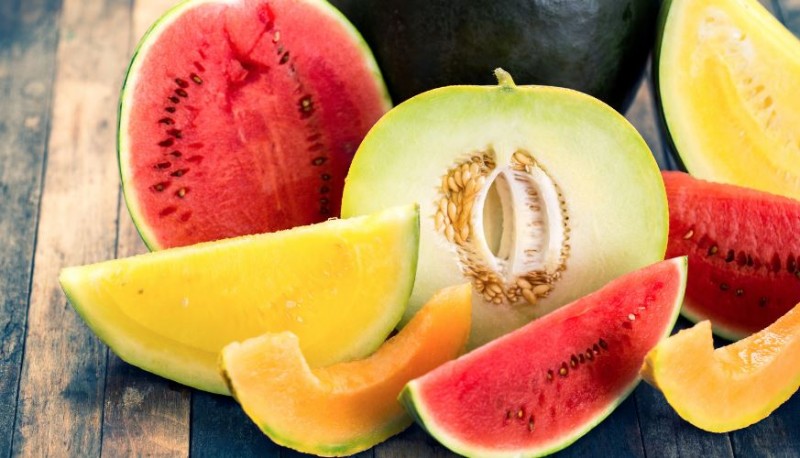
Summer brings with it the joy of indulging in fresh, hydrating fruits. Among the most popular choices are watermelon and cantaloupe. Both fruits are delicious and refreshing, but which one offers more health benefits? Let’s dive deeper into their nutritional profiles and benefits to find out.
Caloric Content: A Close Comparison
When considering caloric intake, watermelon and cantaloupe are quite similar. Watermelon provides about 30 calories per 100 grams, while cantaloupe offers 28 calories per 100 grams. This slight difference means that both fruits are low-calorie options, making them excellent choices for those looking to manage their weight.
Hydration: Essential for Summer
Hydration is crucial, especially during the hot summer months. Both watermelon and cantaloupe have high water content, with around 90% of their weight being water. This makes them perfect for staying hydrated and maintaining fluid balance in the body, which is essential for overall health during the heat.
Protein Content: Cantaloupe Takes the Lead
While fruits are not typically high in protein, cantaloupe has a slight edge over watermelon. Cantaloupe contains approximately 1.11 grams of protein per 100 grams, whereas watermelon has only about 0.61 grams. Although the protein content is not substantial, every bit counts, especially for those who are looking to increase their protein intake.
Fiber: Keeping You Full
Both fruits are excellent sources of dietary fiber, which is beneficial for digestive health and helps in maintaining a feeling of fullness. This can be particularly advantageous for those aiming to lose weight, as fiber can help reduce overall calorie intake by curbing hunger. The fiber content in these fruits also promotes healthy digestion and prevents constipation.
Vitamins and Minerals: Nutritional Powerhouses
Both watermelon and cantaloupe are rich in essential vitamins and minerals.
Watermelon: It is an excellent source of vitamins A and C. Vitamin A is important for eye health, while vitamin C boosts the immune system and promotes skin health. Watermelon also contains antioxidants like lycopene, which has been linked to a reduced risk of certain cancers and heart disease.
Cantaloupe: This fruit is also high in vitamins A and C, providing similar benefits to watermelon. Additionally, cantaloupe contains folate, which is important for cell division and DNA synthesis, and potassium, which helps regulate blood pressure and fluid balance.
Sugar Content: Moderation is Key
Both fruits have natural sugars, which are healthier compared to processed sugars. However, those monitoring their sugar intake, such as individuals with diabetes, should consume these fruits in moderation. Watermelon tends to have slightly higher sugar content compared to cantaloupe, but both are considered low-glycemic index foods, meaning they have a slower impact on blood sugar levels.
Antioxidants: Fighting Free Radicals
Antioxidants are compounds that help neutralize harmful free radicals in the body. Watermelon is rich in lycopene, an antioxidant known for its potential in reducing the risk of certain cancers and improving heart health. Cantaloupe contains beta-carotene, which the body converts into vitamin A, promoting healthy skin and vision.
Weight Loss: Both Are Winners
For those focusing on weight loss, both watermelon and cantaloupe can be beneficial. Their high water content and low-calorie profile make them ideal snacks. Additionally, the fiber in these fruits helps keep you full longer, reducing the likelihood of overeating.
In conclusion, both watermelon and cantaloupe offer numerous health benefits, making them excellent choices for the summer. While cantaloupe has a slight edge in protein content, watermelon boasts higher levels of certain antioxidants like lycopene. Both fruits are low in calories, high in hydration, and rich in vitamins and minerals, contributing positively to overall health. Including either or both in your diet can help you stay refreshed, hydrated, and nourished during the hot summer months.
How life expectancy is projected to be improved by 5 years in men, over 4 in women by 2050
Health Benefits of Hobbies: How Your Passion Can Prolong Your Life, Keep Up These Tricks
Reboot Your Brain: How to Sharpen Your Mind and Boost Your IQ in Just One Week